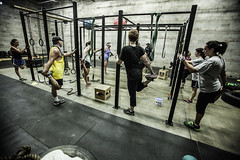
We’ve all been behind that car. The black smoke pouring from the tailpipe, the taillights are taped together, cracks in the windshield, a spare tire in use, all combine to make us think, “What on earth are they thinking?” We know a car in that condition shouldn’t be on the road. Compassionately, we want to recognize that the driver may not have a lot of other choices, but at some point, personal responsibility for the greater good must play a role.
Not everyone understands how the condition of their vehicle impacts the safety of others. Thinking of the aforementioned vehicle, what happens when – not if – that car breaks down? What if it happens at 70 mph on I-30 at 5o’clock in the afternoon? What if the bald tires blowout because Texas heat and bad tires don’t mix?
You see, poorly maintained vehicles perform well enough on good road conditions. The true measure of a vehicle’s abilities come when the conditions change. The truest nature of any vessel is revealed when tested.
Our cultural road conditions changed recently. Covid-19 showed up and suddenly we were all operating at 5o’clock on a Friday on poor road conditions. Our well-being was put to the test. Those who have weathered it well are the people who had maintained their health all along. The folks who had already made regular movement and healthy nutrition part of their routine, didn’t have to scramble as much as others when the world changed. They simply needed to pivot. The conditions of the lane they were in became unstable, so they changed lanes. Changing lanes is easier and safer with a well-maintained vehicle.
Those same people also kept the rest of us a little safer. By maintaining healthy immune systems, they mitigated the results of exposure. The facts support that the majority of healthy people who tested positive for Covid-19 were symptomatic for less time and recovered quickly.
Regrettably, American culture is not one of strong maintenance. When the road conditions changed, we discovered that a lot of us were driving some sad vehicles. Not taking responsibility for what we can control has increased the impact this virus has had on ourselves and our culture. While a large effort was required to reset the road conditions, we were not prepared individually.
Failure to invest in your health is failure to be considerate of others. The extended length of the pandemic and the wholesale loss of income were driven largely by a culture that has categorically not taken personal responsibility for its own well-being.
In a larger scope, consider the following. Health care costs are driven by numbers. The number of people who fall into high risk categories has an impact on your cost of health care. Conditions like obesity, heart disease, and lung disease, which are linked to lifestyle behaviors, drive healthcare costs up for everyone. Allow me to reframe that point: the neglect of the individual harms the greater good.
Did you know that car tires can go bad from lack of use? I drive an older vehicle that only gets used every now and then. The tread on my tires looks great, but because my tires are not being put to use on a regular basis, they risk falling apart. My tire guy explained that tires need to be driven to maintain elasticity. If they’re sedentary for too long, they become brittle. Movement is part of health. Those underused tires could blow out at higher speeds; therefore, I’m putting myself and others at risk by not driving it enough. I can maintain the oil and other fluids all day long, but if I fail to address my Jeep as a whole unit, I’m still operating an at-risk vehicle.
We are all connected to one another’s health. It does me no good to maintain my vehicle if you drive with bad brakes. I need you to do your part while I do mine. Together, we can respond to changing road conditions and keep everyone moving along safely.




